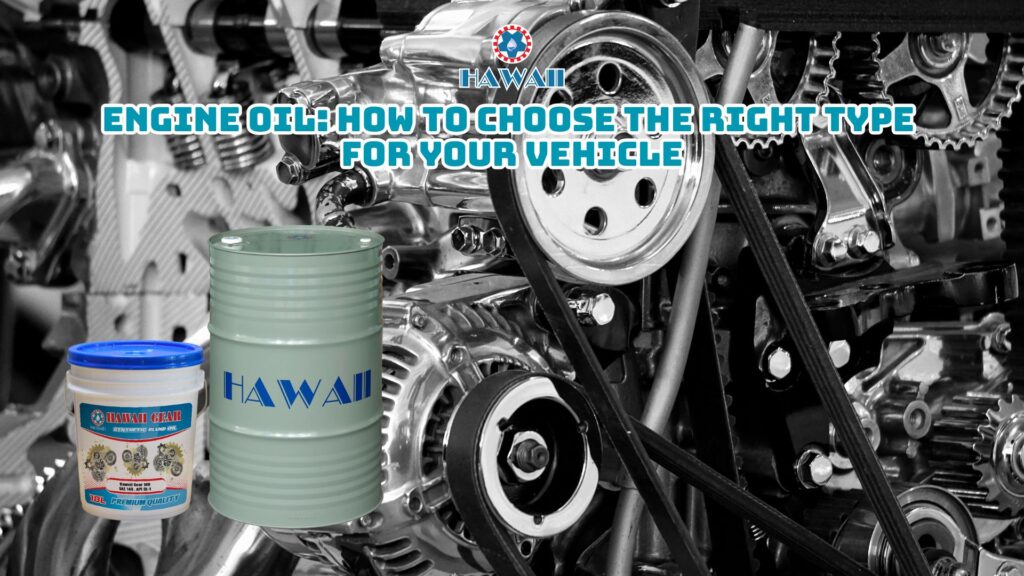Choosing the right engine oil is crucial for maintaining your vehicle’s performance and longevity. With a variety of options available, understanding the different types of engine oils and their specific benefits is essential. This guide will help you navigate the selection process, focusing on the high-quality offerings from Hawaii Oil.
1. Understanding Engine Oil Types
Engine oil serves multiple functions: it lubricates engine components, reduces friction, helps with cooling, and prevents corrosion. The right oil can enhance engine performance and efficiency. Here are the main types of engine oil you might encounter:
Conventional Oil
Conventional oil is derived from refined crude oil and is suitable for light-duty vehicles with standard performance requirements. It provides adequate protection for everyday driving conditions but may require more frequent changes compared to synthetic oils.
Synthetic Oil
Synthetic oils are engineered for superior performance. They offer better protection under extreme temperatures and operating conditions. Synthetic oils resist breakdown and provide enhanced lubrication, making them ideal for high-performance vehicles and those subjected to severe driving conditions.
High-Mileage Oil
High-mileage oils are formulated for vehicles with over 75,000 miles on the odometer. These oils contain additives that help reduce oil consumption, minimize leaks, and protect aging engine seals. They are designed to rejuvenate older engines and maintain optimal performance.
2. Factors to Consider When Choosing Engine Oil
Selecting the right engine oil involves considering several key factors:
Manufacturer Recommendations
Always refer to your vehicle’s owner’s manual for the manufacturer’s recommendations regarding oil type and viscosity. Following these guidelines ensures that you are using oil that meets your engine’s specific requirements.
Viscosity Rating
Engine oil viscosity is indicated by a two-number rating, such as 5W-30. The first number (5W) represents the oil’s flow at low temperatures (W for winter), while the second number (30) indicates its viscosity at high temperatures. Choose an oil with a viscosity rating that aligns with your climate and driving conditions.
Driving Conditions
Consider your typical driving conditions. If you frequently drive in extreme temperatures, tow heavy loads, or engage in stop-and-go traffic, synthetic or high-mileage oils may be more suitable due to their enhanced protective properties.
Quality and Additives
Investing in high-quality engine oil with superior additives can lead to better engine performance and longevity. Products from Hawaii Oil are formulated with advanced additives to protect against wear, corrosion, and deposit formation, ensuring optimal engine health.
Conclusion
Choosing the right engine oil is vital for the performance and longevity of your vehicle. By understanding the different types of oil available and considering factors such as manufacturer recommendations, viscosity ratings, and driving conditions, you can make informed decisions that benefit your engine.
Hawaii Oil offers a range of high-quality engine oils tailored to meet various needs—from conventional oils for everyday use to synthetic solutions for high-performance vehicles. Prioritizing the right engine oil will help ensure your vehicle runs smoothly, efficiently, and reliably for years to come. Regular maintenance and the right oil can make all the difference in your driving experience.


